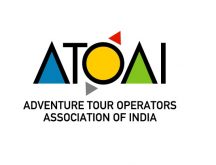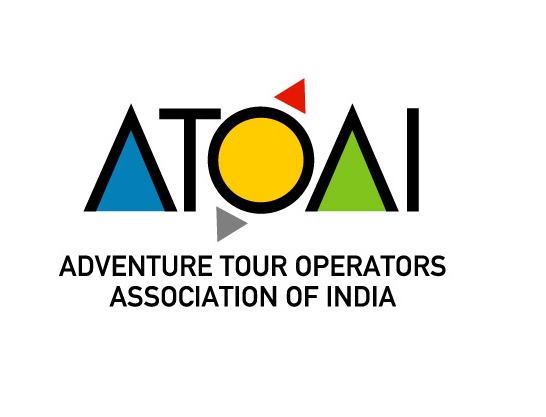 As India rapidly climbs the global ranks in adventure tourism from 99th to 38th position, ensuring safety and sustainability has never been more critical. The Adventure Tour Operators Association of India (ATOAI), in its impactful webinar titled ‘Safety First: Risk Mitigation in Adventure & Outdoor Tourism,’ laid down a clear path for the sector’s growth, grounded in preparedness, accountability and responsible practices.
As India rapidly climbs the global ranks in adventure tourism from 99th to 38th position, ensuring safety and sustainability has never been more critical. The Adventure Tour Operators Association of India (ATOAI), in its impactful webinar titled ‘Safety First: Risk Mitigation in Adventure & Outdoor Tourism,’ laid down a clear path for the sector’s growth, grounded in preparedness, accountability and responsible practices.
The session, held on 4 April, 2025, brought together key voices from the industry to chart a course toward safer, more resilient adventure tourism in India. With a vision of reaching the global top 10 in adventure tourism by 2034, ATOAI underlined that the sector’s promising growth must be supported by robust infrastructure, trained professionals, internationally certified equipment, highly trained adventure guides, safety standards, strong regulatory framework and Standard Operating Procedures.
Delivering the keynote address, Ajeet Bajaj, President, ATOAI, reiterated the sector’s shared responsibility to uphold safety as a non-negotiable pillar. He stressed the urgent need for a cultural shift where safety, sustainability and standardisation go hand in hand with growth. “India is rising fast in global rankings. But with that rise comes a duty—to protect lives, build trust and set benchmarks,” Bajaj said.
The webinar featured distinguished panellists who addressed the sector’s most pressing challenges and actionable solutions:
- Shantanu Pandit, Consultant, EKO India, emphasised that risk management is not a checklist but a process. He advocated for realistic risk assessments, ‘activity mapping,’ SOPs and training to embed a culture of prevention and preparedness at every level.
- Navita Shyam, Alpine Adventures Trail Tours, focused on medical readiness as a shared responsibility between operators and tourists. She highlighted the ‘3 Ps’—Plan, Prepare, Practice—and called for improved first-aid training, wilderness rescue readiness, and better health disclosures by tourists.
- Prateek Gupta, ASC 360, stressed that insurance is a critical tool, not an afterthought. Most insurance claims, he noted, stem from unregistered operators or substandard practices. “Cutting corners to save costs often leads to compromised safety,” he warned, calling for zero tolerance toward low-quality gear and untrained staff.
ATOAI’s ‘Seven Sigma’ model was also introduced as a framework to instil zero-accident principles, built around certified equipment, skilled guides and clearly defined protocols.
Arshdeep Anand, Vice President, ATOAI, moderated the session with insight, tying together diverse perspectives into a unified message: Safety must be systematic, not optional.
As adventure tourism in India scales new heights, ATOAI continues to lead the way in shaping a safer, more accountable ecosystem. The association’s push for standardisation, skilled adventure guides, certified gear and training, insurance compliance and legal accountability sets the stage for long-term, ethical growth.
This webinar marked another milestone in ATOAI’s efforts to ensure that India’s ascent in adventure tourism is not just about numbers, but about values where safety, sustainability and shared responsibility guide every expedition

